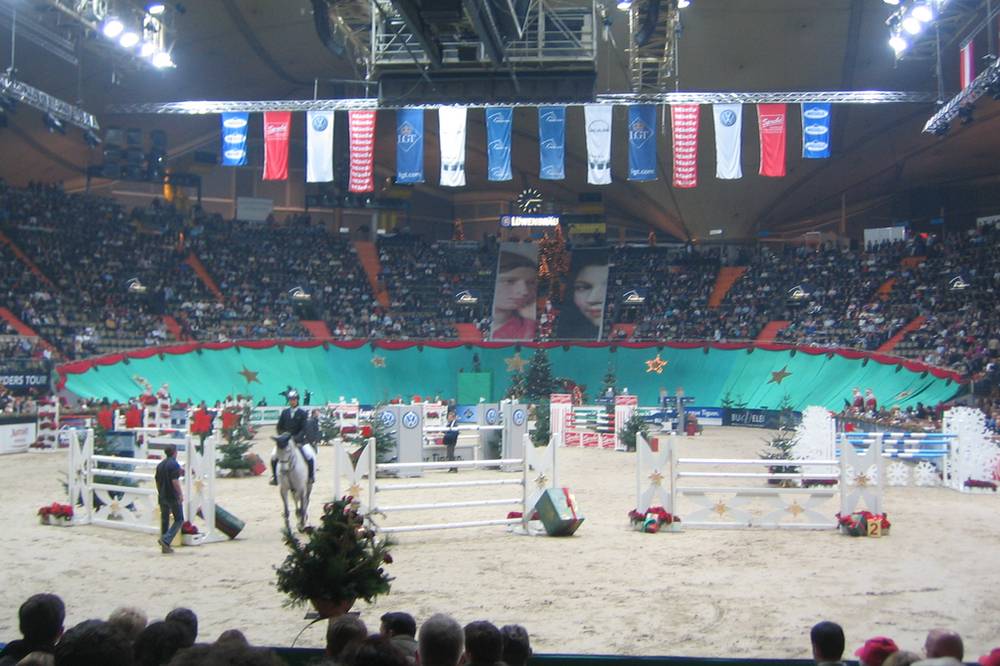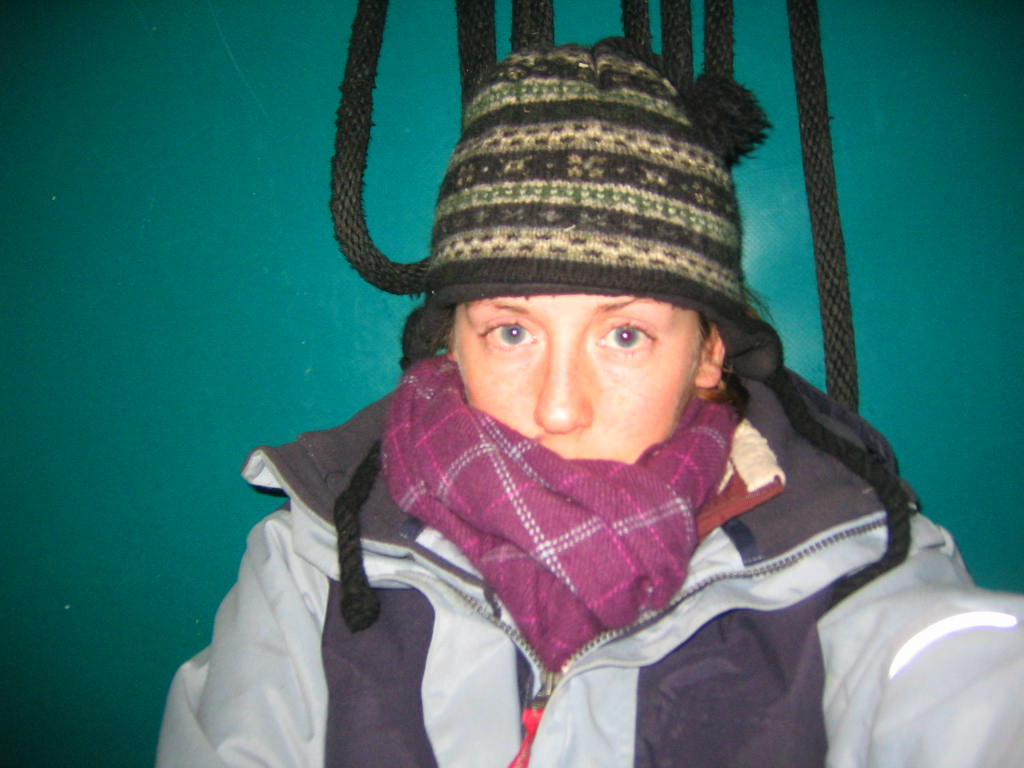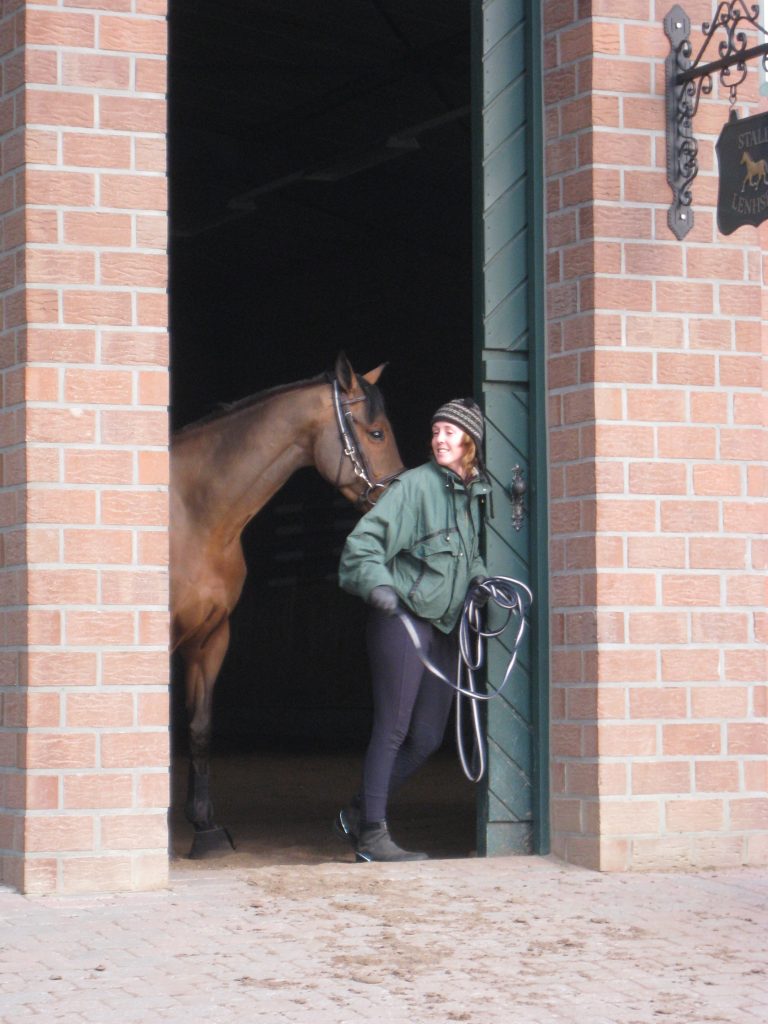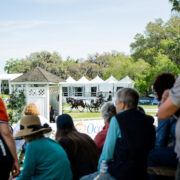The Punishing Life of a Show Groom

I spent the longest night of my life huddled in a parking garage in Munich, Germany. It was cold, it was damp, it was dark . . . I was at a horse show.
The parking garage, adjacent to a sports complex, had been repurposed as show stabling for the week, keeping the horses under cover, if not very warm. This was over a decade ago, at some point between Thanksgiving and Christmas during a brief period when I worked as an international show jumping groom. My rider was the wonderful Peter Wylde (seriously, he’s wonderful, I’ve never worked harder for a better professional), who was based in Europe at the time.
Working in Europe was one of those formative things that every aspiring horse professional should go through, but in signing on to be a show groom, I didn’t look beyond my own starry-eyed dreams to realize what the job actually entailed. But oh boy, did I learn. Show jumping grooms who do the fall/winter indoor circuit ‘round the world are subject to a soul-busting daily grind that begins before dawn when horses are fed, and doesn’t end until the wee hours of the next morning, if at all, when competitions end.
We hear a lot about how magnificent the indoor shows in Europe are, and they are – for the spectators. Night classes that are rousing entertainment for spectators often begin at 9:30 p.m. and end around 11:30 p.m. Spectators may stumble home then, but for the grooms, cool down and aftercare means that the work stretches on for at least several more hours.
That year, Munich Indoors held these kind of late-night classes. It was my job to wait in the parking garage…errr, stabling… until Peter called on the radio to say that his horse could come to the ring. Said horse was tacked, walked down a paved road (next to a freeway) to the ring, and the routine that we are all familiar with ensued. I remember gratefully sitting down in the rider section to watch a round or two, being sad that Meredith Michaels-Beerbaum didn’t want to chat with me (we were both from California, shouldn’t we have been friends?) and other naïve moments as I looked at the indoor arena in marvel while midnight rolled around and horses were still jumping.

I was feeling less marvelous a few hours later, when Peter strolled into the stabling and announced that since it was already so late/early, we should just break down our setup and drive through the night to go home. This 2 a.m. moment sticks in my mind so many years later because I was Just. So. Thoroughly. Exhausted. And while I was beyond tired and perhaps tired of my rider in that moment, I could at least be grateful that he had a lorry driver on hire, so that once we were all packed, my fellow groom and I could sleep a little on the trip back to our end of Germany.
I was lucky (well mostly, Peter was smart not to let a naive American girl drive the lorry) because so many grooms do it all, and then drive themselves and their multi-million dollar cargo many hours back home. And when they arrive at the home barn, it’s time for a full day’s work in the stable; wash, rinse, repeat.
This trip down memory lane isn’t a random one. My friends at World of Show Jumping brought up groom welfare in an article titled “Late night jumping: “It’s not fair on anybody, especially not on the grooms”. The Jan. 15 article points out without specifically naming, a particularly punishing schedule at a recent CSI2* show in Belgium. This is unbelievable on a few levels. For one, there are grooms who I saw working during that show in Munich who are STILL top grooms for riders today. While I wussed out of being a full time groom after a few months, they have been living this life for the last decade or more. How are they even alive? Are they superhuman or just immune to burnout?

This article didn’t answer those burning questions, but it did address the effects of late horse show nights on grooms (I’m sure the horses don’t love it either, but they can’t speak up for themselves), and what can be done about it. Be sure to give it a read. And do anything and everything you can to support the grooms who work so unbelievably hard in this industry. Go BE a groom for just a month, or a week. Experiencing those long hours and the endless work schedule of a top international barn not only turned me into an fastidious neat freak (thank you, Peter Wylde), it gave me lifelong respect for grooms at all levels.
So while the FEI puts out statements and show organizers plan their draft schedules, consider supporting the shows that don’t burn the candle at both ends, rather than those who necessitate 20-hour days and 2 a.m. ring times. We’re in this for the good of the horse, but we need not forget about the quality of life for those who care for them.


